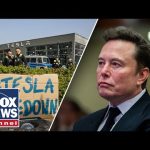President Donald Trump unveiled sweeping new tariffs on April 2, 2025, a day he calls “Liberation Day.” These taxes on foreign goods aim to reset global trade rules and boost American manufacturing. The White House claims this move will end unfair practices that have hurt U.S. workers for decades. Critics argue it could spark inflation and economic turbulence, but Trump’s team insists it’s necessary to reclaim America’s economic power.
The tariffs target a wide range of imports, including a 25% tax on foreign cars and auto parts starting April 3. The policy slaps matching fees on countries that charge America higher trade taxes. White House officials say this “reciprocal” approach forces fairness. They argue foreign nations have taken advantage of weak U.S. trade deals for too long, draining jobs and wealth from American communities.
Karoline Leavitt, Trump’s press secretary, declared this “Liberation Day” policy would protect future generations. “It’s about ensuring there are jobs here for our kids and grandkids,” she said. The administration claims tariffs will push companies to build factories in the U.S., creating millions of blue-collar jobs. Leavitt hinted some nations are already scrambling to renegotiate deals to avoid the new fees.
Liberal economists and Wall Street analysts warn the tariffs could backfire. Goldman Sachs raised the risk of a U.S. recession to 35%, citing potential price hikes and supply chain chaos. Democrats like Chuck Schumer claim Trump “couldn’t care less” if families pay more for everyday goods. Yet the White House brushes off these concerns, comparing short-term pain to long-term gain.
Surprisingly, United Auto Workers boss Shawn Fain backed Trump’s tariffs despite clashing with him on other issues. “He’s the first president to stand up to bad trade deals,” Fain admitted, slamming companies that moved jobs overseas. His support highlights how tariffs appeal to workers tired of seeing factories close. The White House called this a win for Trump’s pro-worker agenda.
Canada and Mexico vowed to retaliate with their own taxes on U.S. products. Europe threatened “countermeasures,” while China condemned the move. Trump’s team remains unfazed, arguing America holds all the cards in trade wars. They note foreign nations rely far more on U.S. markets than we do on theirs. “If they want access, they’ll play by our rules now,” a Trump adviser said.
Auto giants like Chevrolet face pressure to shift production back to America. Companies that outsourced jobs to Mexico could see profits squeezed by the new fees. Trump allies argue corporate greed—not tariffs—drives up prices, pointing to pandemic-era profit spikes. They say businesses can absorb costs instead of passing them to consumers.
The “Liberation Day” tariffs mark Trump’s boldest strike against globalism. While opponents predict doom, conservatives see a watershed moment to rebuild U.S. industry. As one supporter put it, “The trade war started decades ago—America’s just finally fighting back.” The administration bets voters will reward this tough stance, even if prices rise temporarily.




